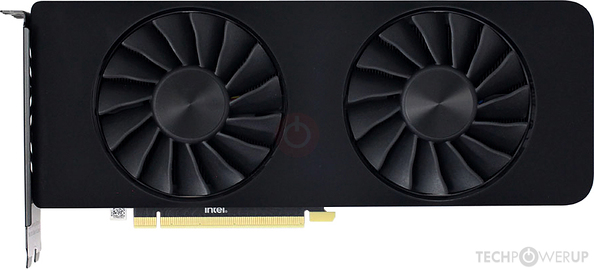The B580 has less: Shading Units, TMUs, ROPs, Execution Units, Tensor Cores, RT Cores.
Compared to the A770. But is still faster?
My current working theory is that they focused too much on compute with the A770 and A750 and too little on memory bandwidth speed.
I am starting to wonder if a A770 can outperform a B580 solely on a compute benchmark.
Anyone has any benchmarks that compares compute of the A770 to the B580?
B580 has less physical memory bandwidth. Even though it uses 20GT memory modules it's only 192-bit while A770 is 16GT and 256-bit.
The Alchemist architecture has lots of architectural imbalances that prevent it from being fully utilized:
https://chipsandcheese.com/p/microbenchmarking-intels-arc-a770
-It needs high workload otherwise it sits idle.
-The 512GB/s memory bandwidth is wasted on Alchemist because it has hard time utilizing it. Also C&C tests show that it can't even reach 512GB/s in tests except in exceptional circumstances, and work more like a 250-300GB/s device.
-Battlemage has other advances such as Fast Clear, a technology which has been in existence in AMD/Nvidia GPUs more than a decade ago but Intel is only using it now. Fast Clear increases utilization of all parts of the memory subsystem from the private caches, large shared caches, and the VRAM itself.
-Battlemage no longer emulates critical instructions that had to be on Alchemist, so it's faster there too.
-Battlemage also clocks quite a bit higher, reducing the gap further.
The compute "advantage" you are talking about is only theoretical. It basically doesn't lose a single test over Alchemist, meaning in the real world it's absolutely worthless.
Comparing based on shaders, fillrate, and memory bandwidth is like looking number of cylinders in a car and saying one is higher performing than the other. You could have a V8 with less horsepower and torque than V6. Also the V6 car might have a more efficient transmission system, is more aerodynamic, and weighs less. Further, the driver behind the wheel affects performance too. And if you are in the middle of New York, then you'll never be able to go full speed. Complex systems require complex analysis to fully understand.






